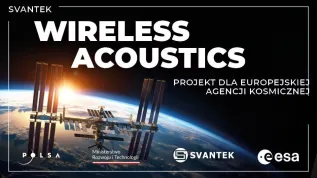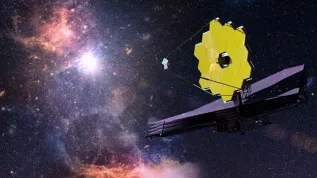
The AGH Space Systems team has won the 8th edition of the European Rover Challenge in Kielce. The team from Kraków took 1st place in the on-site competition. DJS Antarixh team from India won in the remote formula.
The European Rover Challenge (ERC) is a prestigious competition of Mars robots built by student teams. Last week, 30 teams from 10 countries competed in the specially prepared Mars Yard on the campus of the Kielce University of Technology. The competition winners were announced on Sunday.
AGH Space Systems from Kraków took 1st place in the on-site competition. The following places were taken by EPFL Xplore from the Swiss Federal Institute of Technology Lausanne (2nd place) and ITU Rover Team from the Istanbul Technical University in Turkey (3rd place).
“Each competition is heavy, preceded by hundreds of hours spent in the workshop, and it was the same in this case,” Adam Zagrajek from AGH Space Systems said after the competition.
He added: “This year we gave it our best shot. We have been developing our rover +Kalman+ for five years. The most important change this year was a new manipulator (robotic arm) we had worked on for two years, it worked perfectly.”
For three days, the teams competed on the track inspired by a part of the Mars volcanic plain called Elysium Planitia. The teams competed in two formulas - on-site and remote. Teams competing remotely connected with the mobile robot Leo Rover located at the Kielce University of Technology. They controlled the rover from their countries. DJS Antarixh from India turned out to be the best in this competition.
“Every year, this event attracts crowds and amazing figures from around the world. We are glad to host more and more teams from the best universities,” said Łukasz Wilczyński, President of the European Space Foundation and the main organizer of the event.
This year's event was interrupted by the weather. One of the competitions had to take place indoors due to heavy rain.
Wilczyński continued: “We expected rain, but not this much of it. Fortunately we managed to move to plan +B+ and the course of the event was not interrupted. It was possible because one of the competition required the teams to precisely drive to the panel that simulated a reactor and to handle the manipulator at that panel, so why we could play it under the roof.”
The organizers' goal was to reproduce NASA or ESA missions carried out on Mars. In addition to repairing the reactor, the teams were tasked with navigating the track and collecting soil samples.
Wilczyński said: “The beauty of the space sector is that although the participants were members of competing teams, they may soon collaborate on one large project.”
The European Rover Challenge is the largest space event in Europe. It combined international Mars rover competition with science and technology shows. At the event in Kielce, visitors could meet with robotics and space technology experts. The project was co-financed by the 'Social Responsibility of Science' programme established by the Minister of Education and Science.
This year's ERC was co-organised by the European Space Foundation, the Kielce University of Technology and the Marshal's Office of the Świętokrzyskie Voivodeship. PAP - Science in Poland is one of the media sponsors of the event.
PAP - Science in Poland, Wiktor Dziarmaga
wdz/ jann/ kap/
tr. RL
Gallery (7 images)
-
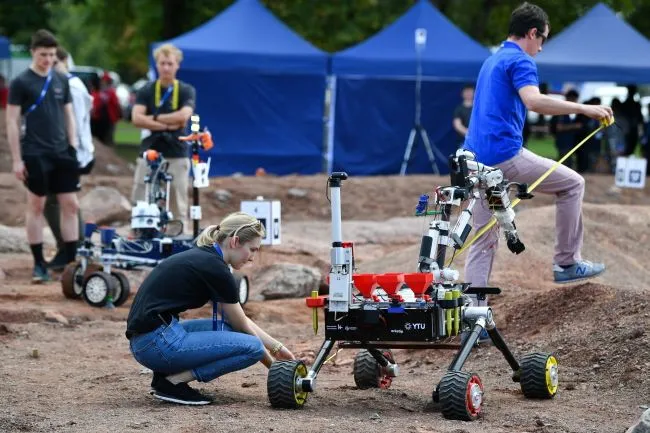 1/7PAP/Piotr Polak
1/7PAP/Piotr Polak -
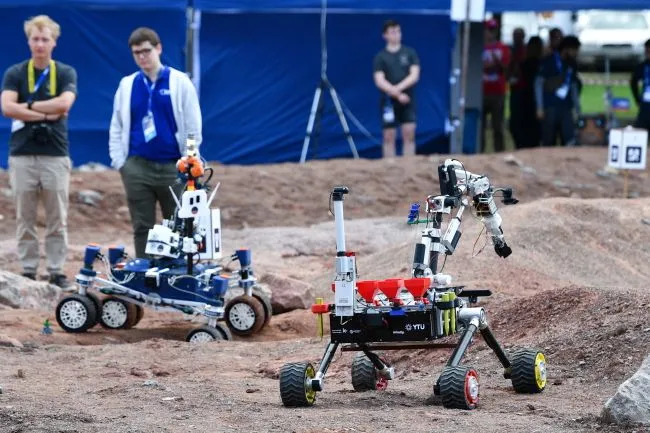 2/7PAP/Piotr Polak
2/7PAP/Piotr Polak -
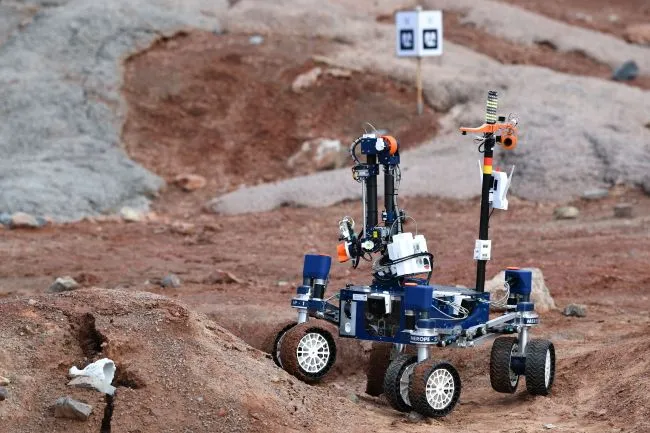 3/7PAP/Piotr Polak
3/7PAP/Piotr Polak -
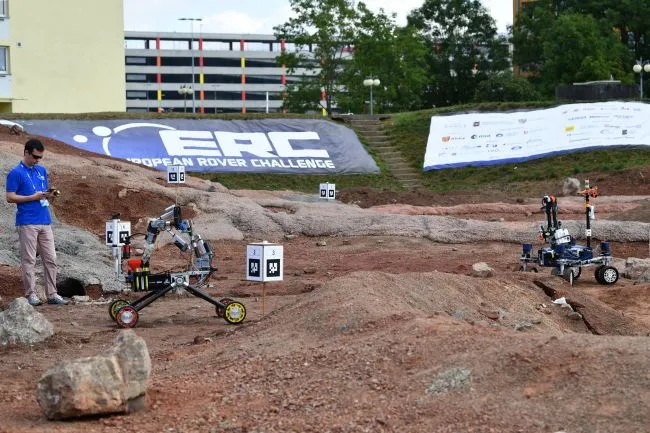 4/7PAP/Piotr Polak
4/7PAP/Piotr Polak -
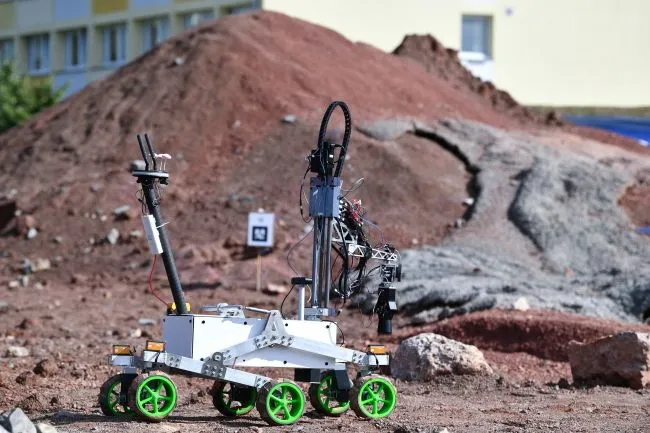 5/7PAP/Piotr Polak
5/7PAP/Piotr Polak -
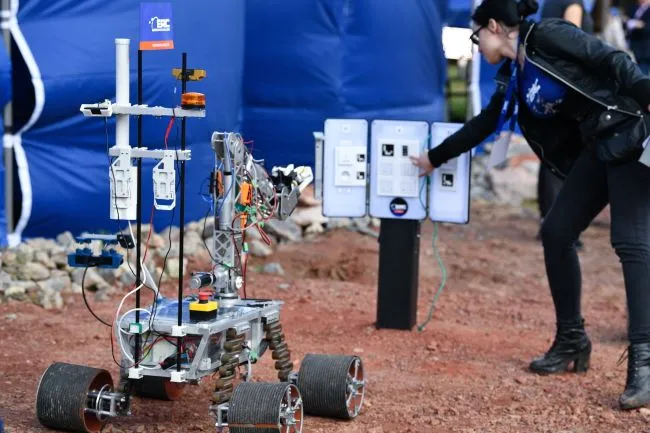 6/7PAP/Piotr Polak
6/7PAP/Piotr Polak -
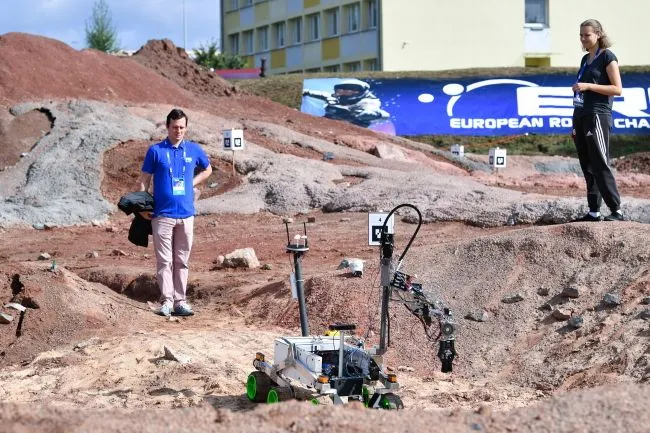 7/7PAP/Piotr Polak
7/7PAP/Piotr Polak

